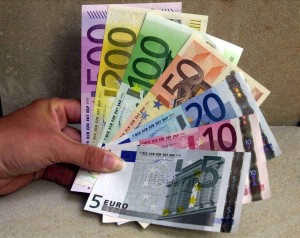Latvia gets green light to become 18th eurozone member
BRUSSELS — The tiny Baltic state of Latvia received the green light from its European partners Tuesday to become the 18th member of the eurozone from next year.
In what Latvia’s prime minister Valdis Dombrovskis described as a “good day for Latvia and also for Europe,” the ECOFIN council — made up of the economy and finance ministers of the EU’s 28 member states — gave formal approval to the country’s euro membership.
“Yes we are joining the euro as of January 1 next year,” Dombrovskis told a news conference.
It had been a long journey for the former Soviet state since it joined the EU in 2004.
And despite the eurozone’s current troubles, membership would bring with it benefits, the prime minister said, pointing to lower interest rates, lower currency conversion costs and increased foreign investment.
Article continues after this advertisementBut it also showed that the crisis-ridden single currency area — which not long ago had been seen as on the verge of disintegrating — was by contrast continuing to enlarge, Dombrovskis said.
Article continues after this advertisementThe official conversion rate of the Latvian lats to the euro was set at 0.702804 lats per euro.
Latvia’s finance minister Andris Vilks said it was a “very symbolic day” for his country, marking the culmination of Latvia’s integration into Europe.
“We trust Europe and we trust the euro,” he said, adding that he hoped Latvia would prove to be one of the “best performers” in the single currency zone.
Latvia emerged from a crisis in 2008-09 to become the EU’s fastest-growing economy, having posted GDP growth of more than five percent year-on-year in both 2011 and 2012.
But on top of the manifold technical issues now facing Latvia before euro banknotes and coins are finally introduced, Dombrovskis acknowledged that his government still has to convince Latvians that eurozone membership is a good thing.
According to a poll released Tuesday and carried out in June by the SKDS research firm, 53 percent of Latvians were opposed to euro adoption while 22 percent were in favor. The remaining 25 percent were either undecided or neutral on the matter.
Despite large-scale advertising by the Latvian central bank stressing the benefits of euro membership, polls suggest Latvians remain wary of swapping their currency while eurozone members such as Greece and Cyprus are in crisis.
Irina Livchuk from the Bikernieki suburb of Riga, an acupuncturist at a local children’s hospital told AFP she was opposed to euro adoption at the moment.
“I spent seven years living in Spain so I have a lot of experience with the euro and Europe, but look around you,” she said, pointing to an area of waste ground.
“It doesn’t look like Europe and it certainly doesn’t feel like Europe. I think this is the wrong time to do this.”
Hard work to convince public opinion
Latvian Foreign Minister Edgars Rinkevics said his government “still has to do a lot to convince the public that it’s the right decision.
“I’m not entirely happy that more than half of the population do not believe in the euro,” he told AFP.
The EU Commissioner for Economic and Monetary Affairs Olli Rehn insisted, however, that the experience of another Baltic state, Estonia, which joined the euro in 2011, had proved the economic benefits of the single currency.
“Experience has shown that countries that avoid macro-economic imbalances do succeed and benefit from the euro,” he said.
Finance Minister Vilks said Latvia also had something it could offer its eurozone partners — the experience of overcoming its own economic crisis.
Most important for the single currency area are “bold decisions, fast actions from politicians and very good social dialogue,” he said.
And speed is of the essence, the minister added.
“If you are delaying this job, it is more and more complicated later on to do something. Europe should do something to get on the track otherwise it will be the loser in a global context,” he said.
The situation in the euro area is currently better than before, Vilks added.
“Governments are doing the right job in many of the countries, in fact in all of the countries.
“But it’s very difficult to get good results if it’s going so slowly. The major issue is speed,” he said.
